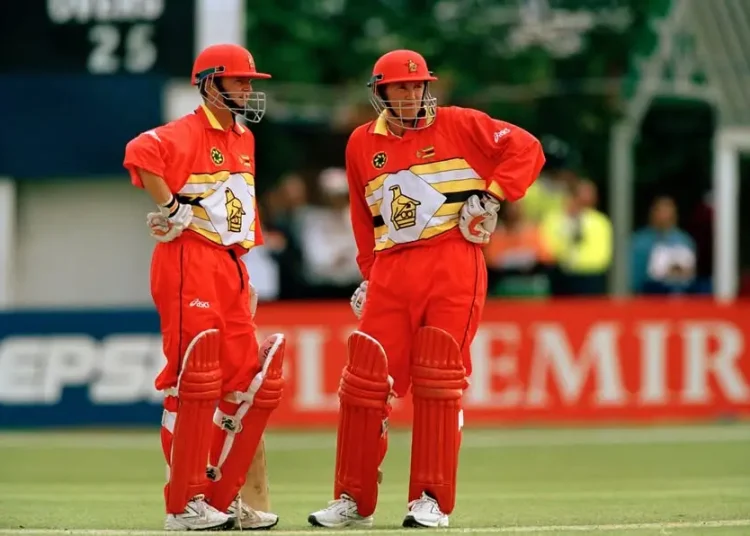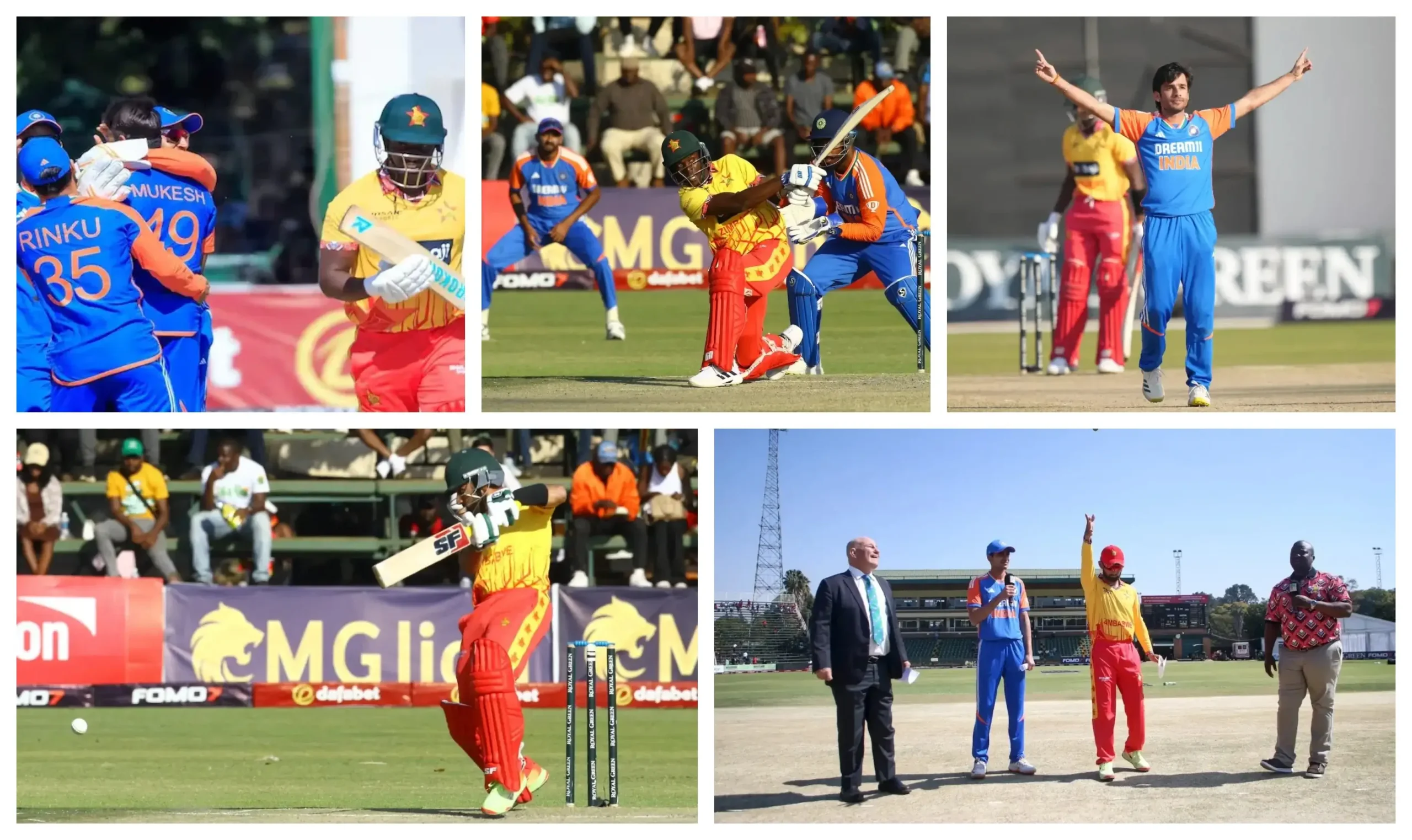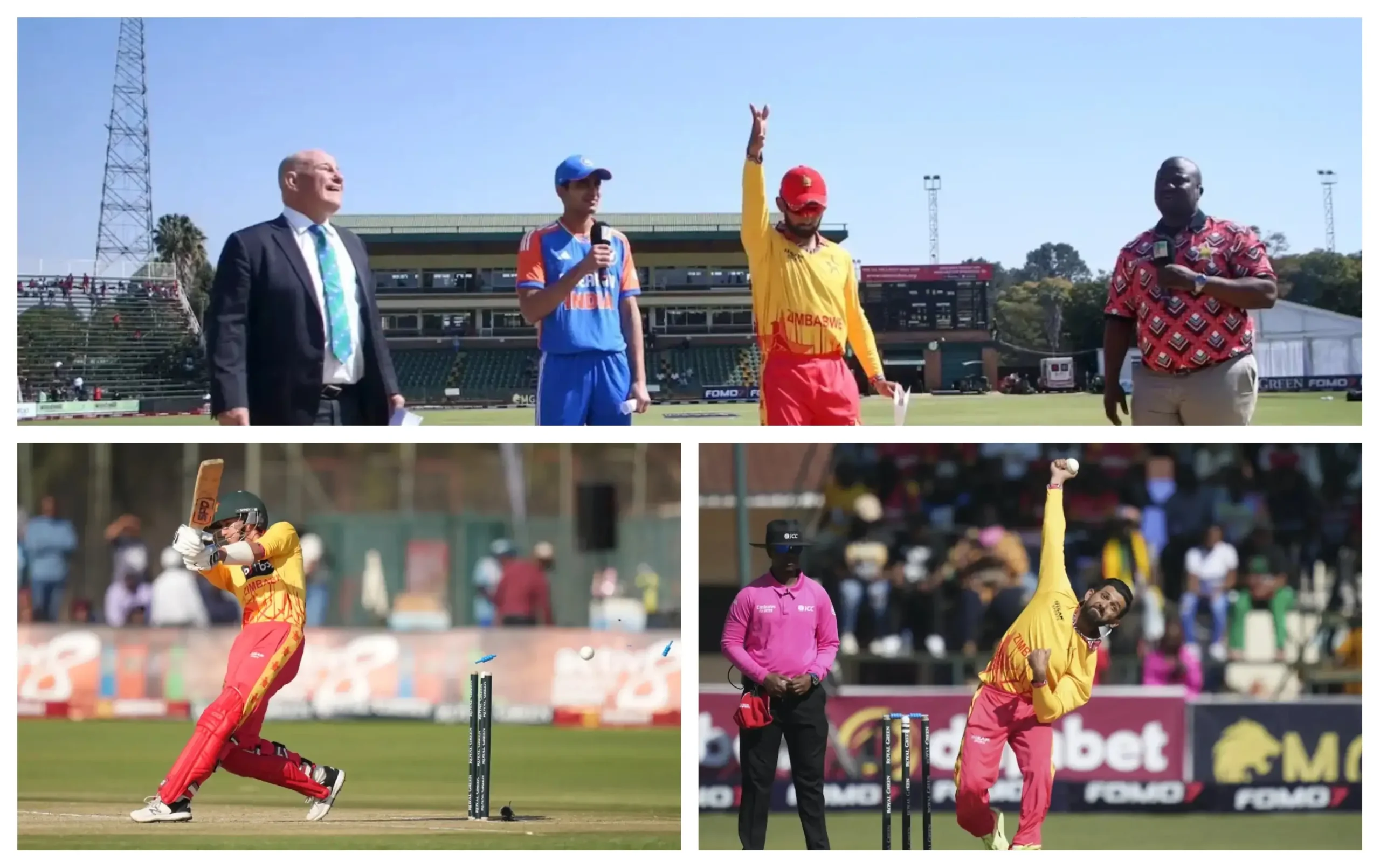Zimbabwe once shone as a co-host of the 2003 Cricket World Cup. They’re set to co-host again in 2027 with South Africa and Namibia. Can they reclaim their place as a global cricket host? Their cricketing history includes memorable wins, like beating Australia in 1983. Yet, recent failures to qualify for major ICC events raise doubts. Economic challenges and administrative issues have dimmed their shine.
Still, Zimbabwe Cricket is rebuilding, with upgraded venues and big ambitions. As ESPN reports, their 2027 hosting role is a vote of confidence. This article explores Zimbabwe’s past, present, and future in hosting ICC events. We’ll analyse challenges, opportunities, and what fans think. Will Zimbabwe rise again? Let’s find out.
Zimbabwe’s History of Hosting ICC Events
Zimbabwe has a notable history of hosting ICC events, despite recent struggles. They co-hosted the 2003 Cricket World Cup with South Africa and Kenya, a milestone for African cricket. As per Wikipedia, matches in Harare where they have beaten teams like India and Australia. They also hosted ODI World Cup Qualifiers in 2018 and 2023, showcasing their potential. The 2026 U-19 World Cup is another step forward. These events highlight Zimbabwe’s ability to manage international tournaments. However, political controversies in 2003 and administrative setbacks have cast a shadow. Their experience gives them a foundation, but can they scale up for 2027? Their track record suggests they’re capable, if challenges are addressed.
The 2003 Cricket World Cup Experience
In 2003, Zimbabwe co-hosted the Cricket World Cup, a landmark event. Harare Sports Club and Queens Sports Club in Bulawayo hosted six matches. BBC Sport notes that despite security concerns, teams like Australia and India played in Zimbabwe. England’s refusal to play in Harare, citing safety, sparked controversy. Players Andy Flower and Henry Olonga wore black armbands, protesting political issues. Despite these hurdles, Zimbabwe managed the event well. Crowds were enthusiastic, and venues performed adequately. This experience proves Zimbabwe can handle high-profile tournaments, setting a precedent for 2027.
Recent Hosting of Qualifiers and U-19 Events
Zimbabwe has kept its hosting credentials alive with smaller ICC events. They hosted the 2018 and 2023 ODI World Cup Qualifiers, drawing crowds in Harare and Bulawayo. As ESPNcricinfo states, the 2023 Qualifiers at Takashinga Cricket Club showed growing local interest. According to ICC records, Zimbabwe is also set to host the 2026 U-19 World Cup. These events test their organisational skills and infrastructure. While smaller than a World Cup, they’ve built expertise in logistics and hospitality. Success here could boost confidence for 2027, but scaling up remains challenging, especially after encounters with the ICC.
Zimbabwe’s Role in the 2027 Cricket World Cup
Zimbabwe is confirmed to co-host the 2027 Cricket World Cup with South Africa and Namibia. This marks their second World Cup hosting stint since 2003. The Guardian reports that the ICC’s decision reflects trust in Zimbabwe Cricket’s revival efforts. They’ll likely host several matches, leveraging venues like Harare Sports Club. Their automatic qualification as co-hosts ensures participation. However, their role may be smaller than South Africa’s, given Namibia’s debut as a host. Zimbabwe’s challenge is to prove it can deliver a world-class event. Their preparations are underway, but success hinges on infrastructure and stability.
Co-Hosting with South Africa and Namibia
In 2027, Zimbabwe will share hosting duties with South Africa and Namibia. South Africa, with eight shortlisted venues, will lead, per Wikipedia. Namibia, a first-time host, adds novelty but limited resources. Zimbabwe’s role includes hosting key matches, likely in Harare and Bulawayo. As BBC Sport highlights, this collaboration boosts African cricket’s global profile. Zimbabwe’s 2003 experience gives it an edge over Namibia. Yet, they must coordinate with stronger partners to ensure seamless execution. This regional approach could elevate Zimbabwe’s cricketing stature if it capitalises on it.
Infrastructure and Venue Readiness
Zimbabwe’s venues, like Harare Sports Club and Queens Sports Club, are undergoing upgrades. Harare now boasts new floodlights, per Hindustan Times. Takashinga Cricket Club has also hosted international matches. However, as ESPNcricinfo notes, Zimbabwe lacks a FIFA-approved stadium for qualifiers, raising concerns about facilities. They plan to build a stadium near Victoria Falls, but timelines are tight. Indoor training facilities and a national academy are in development. These upgrades are promising, but funding and completion remain uncertain. Zimbabwe must ensure world-class venues to meet ICC standards by 2027.
Challenges Facing Zimbabwe’s Hosting Ambitions
Zimbabwe faces significant hurdles in hosting the 2027 World Cup. Economic instability, with high inflation, strains funding, as The Indian Express reports. Political tensions, though eased since 2003, linger. Their cricket team’s poor performance—missing the 2023 ODI and 2024 T20 World Cups—hurts credibility. Administrative issues, including a 2019 ICC suspension, have slowed progress. As Wikipedia states, player strikes and corruption allegations have plagued Zimbabwe Cricket. These challenges could undermine their ability to host a global event. Addressing them is crucial for a successful 2027 tournament, especially with teams like South Africa and Australia.
Economic and Political Hurdles
Zimbabwe’s economy is a significant obstacle. Hyperinflation and currency issues limit investment in cricket infrastructure. The Guardian notes that economic woes affected the 2003 World Cup’s logistics. Politically, the post-Mugabe era has improved ties with nations like the UK, per ESPNcricinfo. Yet, lingering instability could deter teams or fans. The 2003 England boycott showed how politics can disrupt events.
Zimbabwe must stabilise its economy and ensure safety to attract global audiences. Without these, their 2027 hosting dreams could falter.
Cricket Administration and Performance Issues
Zimbabwe Cricket’s administrative struggles are well-documented. A 2019 ICC suspension for government interference halted progress, per ESPNcricinfo. Like Hamilton Masakadza’s 2024 exit, player disputes and coaching changes reflect instability. The team’s failure to qualify for recent World Cups—losing to Scotland in 2023—dents their reputation. As Wisden reports, captain Sikandar Raza called the 2024 T20 World Cup miss “painful.” Weak performances reduce Zimbabwe’s appeal as a host. Strengthening administration and on-field results is vital to restore confidence by 2027.
Opportunities for Zimbabwe to Shine in 2027
The 2027 World Cup offers Zimbabwe a chance to rebuild its cricketing legacy. Hosting could boost tourism and local enthusiasm, as seen in 2003. As BBC Sport states, Zimbabwe Cricket is restructuring domestic pathways and investing in youth. Their 2026 U-19 World Cup hosting will test their readiness. Collaboration with South Africa could provide expertise and funding. Zimbabwe can reassert its place in global cricket by showcasing vibrant crowds and improved venues. The key is leveraging these opportunities effectively in leagues like the IPL.
Boosting Cricket’s Popularity Locally
Hosting the 2027 World Cup could reignite cricket’s popularity in Zimbabwe. The 2023 Qualifiers at Takashinga drew huge crowds, per ESPNcricinfo. Venues in high-density areas make the sport accessible. As The Indian Express notes, fans’ passion during losses shows deep support.
Zimbabwe Cricket’s focus on school programs and private institutions could expand the player base. A successful World Cup could inspire a new generation like Andy Flower’s era did. Engaging local communities will be crucial for lasting impact.
Leveraging Regional Collaboration
Co-hosting with South Africa and Namibia opens doors for Zimbabwe. South Africa’s experience from 2003 and 2010 (FIFA World Cup) offers valuable lessons. As BBC Sport reports, Namibia’s inclusion highlights African unity. Zimbabwe can tap South Africa’s resources, like broadcast expertise, to enhance its role.
Joint marketing could attract tourists across borders. By learning from partners, Zimbabwe can elevate its hosting standards. This collaboration could position Africa as a cricketing hub, with Zimbabwe at its heart.
What Experts and Fans Are Saying
The cricketing world is cautiously optimistic about Zimbabwe’s 2027 role. Experts praise their hosting potential but urge improvements. Fans, meanwhile, are vocal about their hopes and frustrations. As BBC Sport quotes, Zimbabwe Cricket’s Tavengwa Mukuhlani sees 2027 as a chance to celebrate Africa.
Social media reflects mixed sentiments, with some doubting Zimbabwe’s readiness. Understanding these views sheds light on Zimbabwe’s path forward. Their success depends on addressing concerns and building trust.
Insights from Cricket Authorities
Zimbabwe Cricket’s leadership is confident about 2027. Tavengwa Mukuhlani called the ICC’s decision a “vote of confidence,” per BBC Sport. ICC’s Chris Tetley emphasised fair qualification pathways, supporting Zimbabwe’s role. However, as ESPNcricinfo reports, coach Dave Houghton criticised “embarrassing” qualifier losses, urging better preparation.
Experts like Firdose Moonda note Zimbabwe’s vibrant fanbase but warn of logistical gaps. Authorities agree that Zimbabwe can host successfully if it addresses infrastructure and administrative issues promptly with the help of Tetenda Taibu.
Fan Sentiment on Social Media
Fans on platforms like X are divided. Some, like @AdamTheofilatos, praise Zimbabwe’s revival and 2027 potential, citing Sean Williams’ optimism. Others, like @daddyhope, lament Zimbabwe’s lack of international-standard grounds, echoing Bafana Bafana’s coach. As posts on X show, fans want a World Cup to restore pride but fear economic constraints. The 2003 legacy inspires hope, but recent failures fuel scepticism. Engaging these fans through transparent planning could build support for 2027.
Conclusion
Zimbabwe’s chance to host the 2027 Cricket World Cup is a golden opportunity. Their 2003 success proves they can manage global events. Upgraded venues and regional partnerships with South Africa and Namibia strengthen their case. Yet, economic instability, administrative woes, and poor team performance pose risks. As ESPNcricinfo highlights, Zimbabwe Cricket’s restructuring efforts show promise. By addressing challenges and leveraging opportunities, they can shine in 2027. Fans and experts alike see potential for a vibrant, Africa-centric tournament. Zimbabwe’s cricketing future hangs in the balance—will they seize this moment? Only time will tell.







